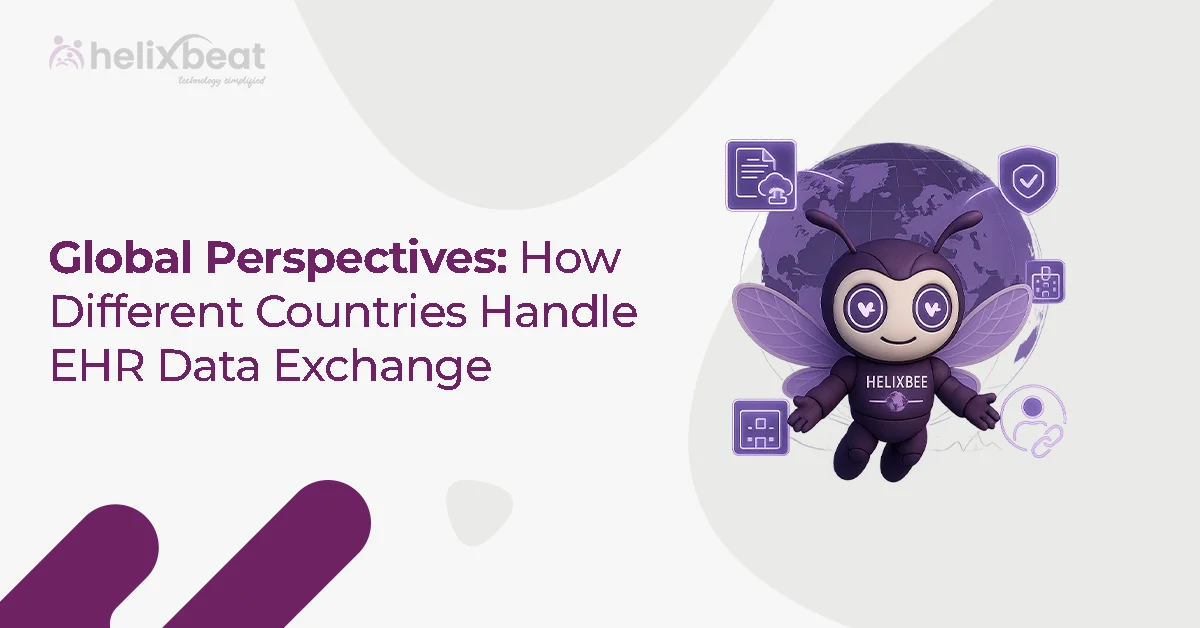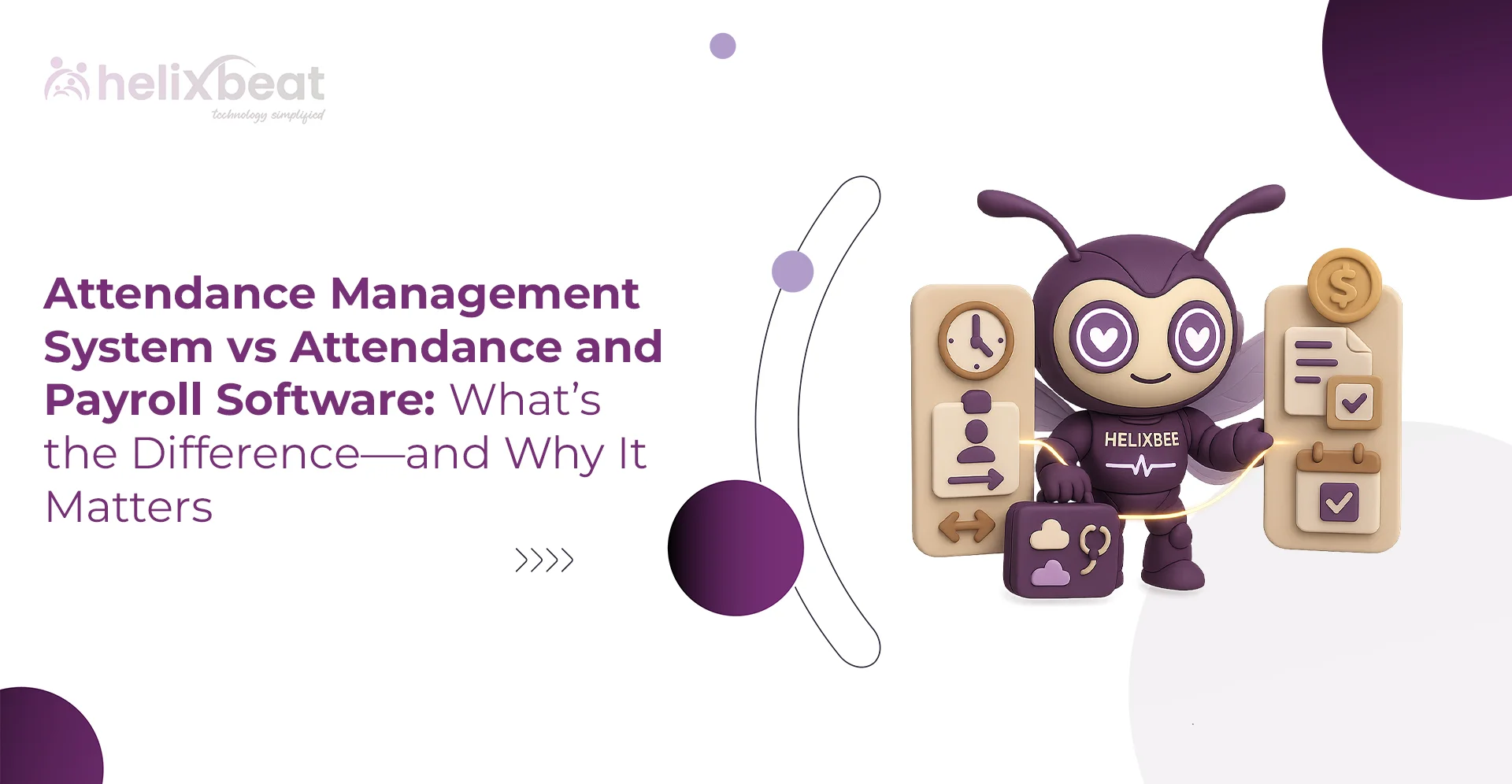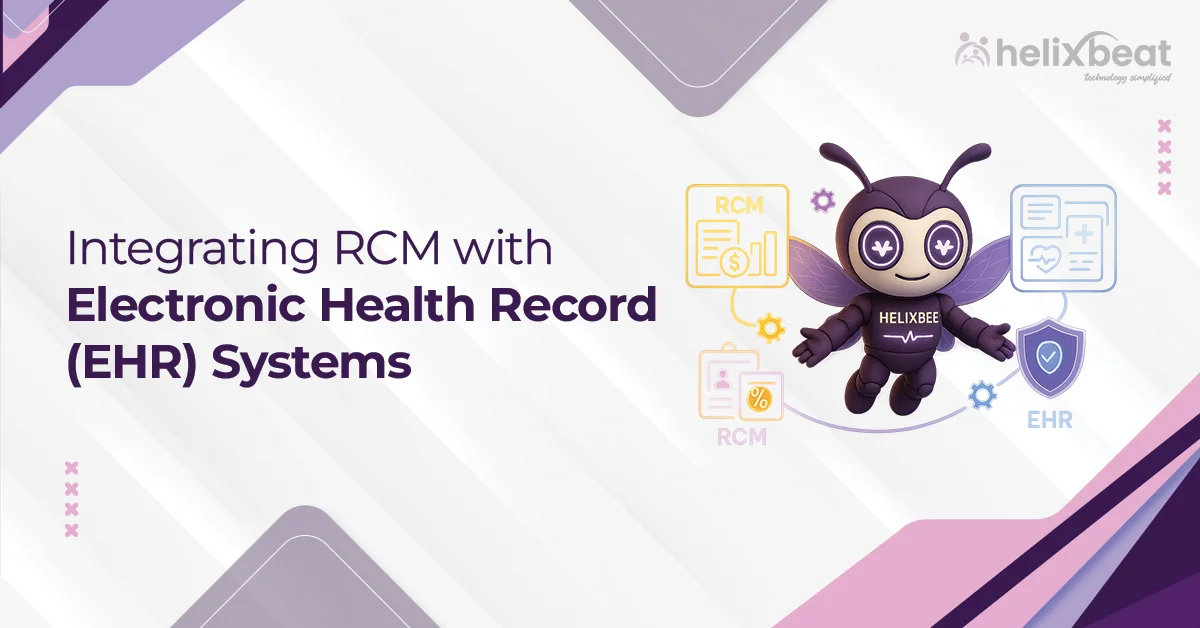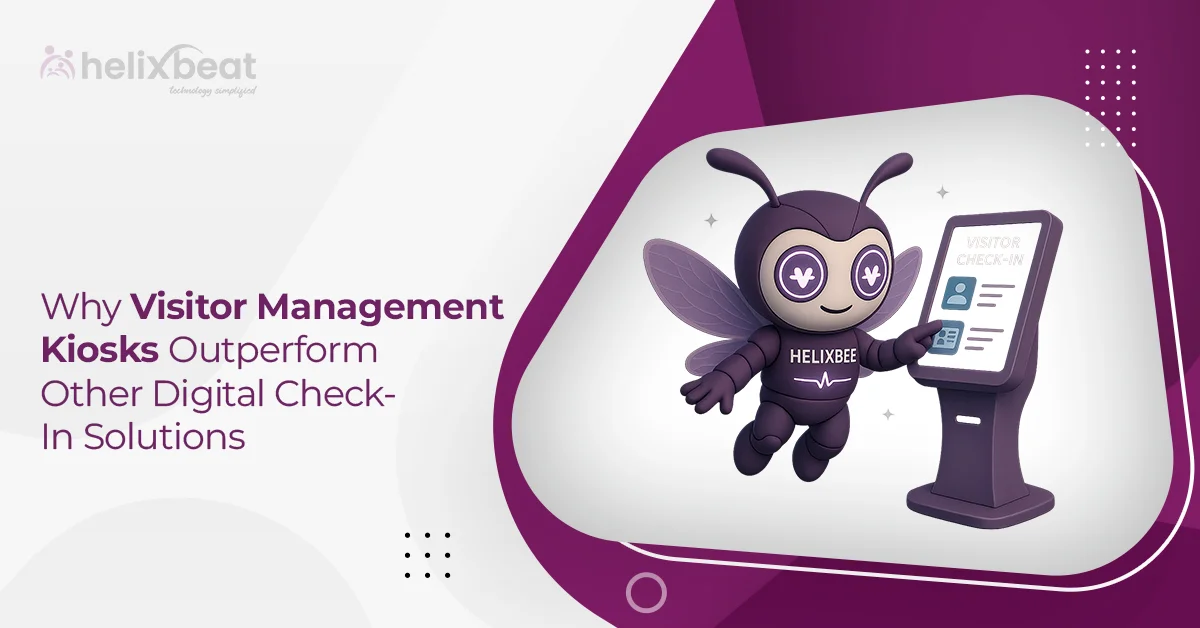“Is managing your clinic’s patient data a strategic advantage, or just another daily struggle?”
Managing patient records, keeping them secure, and accessing insights at the right time can significantly impact care quality. Yet, many clinics still rely on disconnected systems and manual processes that increase errors, create delays, and risk data breaches.
In this blog, we’ll show you how to streamline Patient Data Management in just three practical steps. You’ll also learn how PULSE by Helixbeat can help you unify, automate, and secure your patient data, so your clinic runs smarter, faster, and with complete confidence.

Table of Contents
What Is Patient Data Management?
Patient Data Management is the process of capturing, organizing, storing, saving, and utilizing patient-related information throughout every stage of the care journey.
It goes beyond record-keeping, promoting healthcare providers to deliver personalized care, track health trends, minimize operational errors, and make informed clinical decisions.
Key components of effective Patient Data Management include:
- Digitizing patient records, reports, and clinical documentation for consistent access
- Supporting up-to-date patient information such as demographics, insurance, and consent
- Applying data security protocols like encryption, multi-layer access control, and backups
- Enabling real-time information sharing among clinicians, labs, and administrative staff
- Combining seamlessly with EHRs, billing methods, and communication platforms to reduce data silos
Why Patient Data Management Is the Backbone of Modern Healthcare?
Below are the 3 steps to streamline Patient Data Management:
Step 1: Centralize Records with a Healthcare Data Management System
A centralized healthcare data management system consolidates all patient-related information into a single, unified platform, eliminating fragmented records, duplication, and departmental silos.
Rather than toggling between spreadsheets, printed forms, and multiple applications, healthcare teams can access accurate, real-time data from a single, secure source.
This streamlined approach empowers every unit, including reception, physicians, diagnostic labs, and billing, to operate with shared visibility, resulting in faster decision-making and fewer errors.
What a centralized system improves:
- Full access to patient records across departments and devices
- Streamlined data capture from consultations, labs, and follow-ups
- Reduced clerical workload and paper-based redundancies
- Consistent and accurate recordkeeping without duplication
- Interoperability with lab software, pharmacy systems, and external EHR platforms
Step 2: Automate Workflows Using Patient Data Management Software
Manual processes like handwritten notes, printed files, and manual scheduling don’t just slow down your clinic—they create communication gaps, increase the risk of human error, and stretch your team thin. Embracing robust patient data management software, such as PULSE, eliminates these friction points by automating routine workflows and connecting your data across every department in real time.
From the moment a patient fills out an intake form to the point where their lab reports are shared with specialists, automation ensures consistency, accuracy, and timeliness without added effort. It also helps you improve patient satisfaction through seamless reminders, follow-ups, and faster responses.
With automation, your clinic can:
- Digital intake forms and appointment scheduling
- Automated reminders for check-ups and tests
- Real-time updates to patient records
- Instant report sharing via secure links
Step 3: Secure & Optimize with Smart Patient Data Solutions
Security is no longer a back-office concern—it’s a strategic priority. With cyberattacks on healthcare institutions at an all-time high, any breach could cost your clinic far more than just fines. It could erode patient trust, damage your reputation, and interrupt care delivery.
That’s why using reliable, cloud-based patient data solutions like PULSE isn’t just smart—it’s essential. It helps practices safeguard sensitive health information while making it easier to access, audit, and act upon in real time.
Here’s how innovative data solutions enhance your security and performance:
- Granular access control: Assign staff-specific permissions to prevent unauthorized access
- End-to-end encryption: Protect patient data during storage and transmission with modern encryption standards
- Real-time threat detection: Get alerts for unusual logins or activity with continuous monitoring
- Audit-ready tracking: Maintain detailed logs for all user actions to simplify compliance reporting
- Built-in analytics: Translate patient interaction data into actionable insights for clinical and operational decision-making
Why Patient Data Management Matters
Without a reliable system, data can become fragmented, outdated, or insecure leading to misdiagnosis, treatment delays, and compliance issues.
A well-managed system, on the other hand, streamlines care, reduces risk, and enables growth.
Here’s why patient data management matters:
- Better Clinical Decisions
- Enables informed treatment with access to real-time, accurate data
- Reduces guesswork, leading to faster and more effective outcomes
- Fewer Errors and Omissions
- Eliminates duplicate tests and missing information
- Reduces the chance of prescription and diagnosis errors
- Stronger Patient Engagement
- Supports personalized care plans with accessible data
- Enables timely follow-ups and improved communication
- Operational Efficiency
- Reduces paperwork and manual entry
- Frees up staff time for patient-centric tasks
- Regulatory Compliance
- Helps maintain HIPAA and GDPR standards
- Keeps audit logs and enforces data access control
- Foundation for AI and Analytics
- Enables integration of AI tools and predictive models
- Leverages data for long-term healthcare insights
- Accurate Billing and Claims Management
- Minimizes errors in billing codes and patient details
- Speeds up insurance processing
- Better Collaboration Across Departments
- It makes cross-functional access to records seamless
- Improves team coordination and care delivery
- Preparedness for Disasters or Downtime
- Cloud backups reduce the risk of permanent data loss
- Enables quick recovery after system failures
- Boosts Patient Trust and Retention
- Patients feel safer when their data is well-managed
- Strengthens your clinic’s brand reputation
How PULSE by Helixbeat Enhances Patient Data Management
PULSE is a comprehensive patient data management system that natively addresses the challenges of data accuracy, security, and patient engagement, all in one unified platform:
- Immutable, Tamper‑Proof Records
- PULSE logs every data entry, change, and update with a timestamp, creating an indelible record.
- This reduces disputes by up to 25% and slashes compliance risk, saving potentially $50,000 per incident.
- Secure Storage with Encryption & Access Logs
- Patient records are encrypted in transit and at rest.
- Detailed audit trails track every user interaction, enabling transparent reporting and secure, HIPAA-compliant operations.
- Real-Time Monitoring & Alerts
- PULSE monitors system activity continuously.
- Any anomalies, like unauthorized access or tampering, trigger proactive alerts, enabling administrators to act swiftly.
- Patient‑Centric Empowerment
- Patients get secure portals to view and control access to their records.
- This transparency builds trust and fosters engagement; clinical teams have reported a 15% increase in patient retention.
- Seamless Interoperability
- Built with HL7 and FHIR standards, PULSE integrates effortlessly with labs, pharmacies, imaging systems, and EHR platforms
- It ensures consistent workflows and reduces data silos.
- Analytics, Reporting & Compliance Tools
- With built-in dashboards and customizable reports, PULSE makes compliance easy (e.g., HIPAA, MACRA, ONC).
- And it provides actionable insights—from billing cycle data to clinical trends.
- Mobile-Friendly and Scalable Cloud Architecture
- The cloud-native build supports secure remote access with multi-factor authentication. Automatic backups and failover mechanisms ensure resilience and scalability.
CTA: Book your personalized demo today with Helixbeat!
Common Pitfalls to Avoid
Even with digital systems in place, practices can still encounter data challenges that hinder their operations or expose them to risk. Avoiding these pitfalls is critical to building a sustainable, future-ready clinic.
Here are common mistakes to watch for:
- Relying on Paper or Disconnected Tools:
Using spreadsheets, printed forms, or outdated apps leads to data silos and duplication.
- Inconsistent Data Entry Practices:
A lack of standardization in how staff input data results in mismatched records.
- Weak Access Control:
Without role-based permissions, any staff member may access sensitive information unnecessarily.
- Neglecting Regular Audits:
Skipping periodic data reviews makes it hard to detect errors or unauthorized activity.
- Ignoring Data Backup and Recovery:
A hardware crash or cyberattack could permanently delete or corrupt crucial patient records.
- Poor Training for Staff:
Even the best systems fail if your team doesn’t know how to use them correctly and securely.
- No Integration Between Tools:
When your EHR, lab, pharmacy, and billing systems don’t talk to each other, inefficiencies multiply.
- Failure to Monitor Usage:
Without real-time usage monitoring, you might miss misuse, access violations, or underutilization.
Wrapping Up
Your patient data should work for you, not against you. With a platform like PULSE by Helixbeat, you can take complete control of your patient data—unifying records, automating workflows, and securing every touchpoint. Whether you’re scaling a practice or trying to reduce administrative overhead, more intelligent data systems can unlock more time for care and less time for damage control.
CTA: Ready to take the next step? Book your PULSE demo now
FAQs
- What is Patient Data Management?
Patient Data Management refers to the structured collection, organization, protection, and accessibility of patient-related health information. It enables providers to make better decisions and deliver coordinated care.
- What are the three principles of data management?
Accuracy, accessibility, and security. These principles guide how data should be recorded, shared, and protected.
- What tools are used in Patient Data Management?
EHRs, cloud-based patient portals, analytics dashboards, and automation tools like PULSE.
- How does automation improve patient data workflows?
Automation eliminates manual entry, sends reminders, updates record in real-time, and reduces clerical errors.
- What are the three phases of clinical data management?
Data collection, data validation, and data analysis.
- Is cloud-based storage secure for healthcare data?
Yes—when using HIPAA-compliant systems like PULSE that offer encryption, access controls, and audit trails.
- What are common patient data mistakes to avoid?
Using disconnected systems, failing to back up data, inconsistent entry practices, and not training staff.
- Can small clinics afford advanced data systems?
Yes—platforms like PULSE are scalable and designed to support both small and large practices efficiently.
- How can I assess my current data management performance?
Conduct an audit of your tools, workflows, and data accuracy. Look for gaps in security, access, and integration.
- Where can I learn more about improving data management?
Book a free demo with PULSE by Helixbeat to explore tailored solutions for your clinic.














